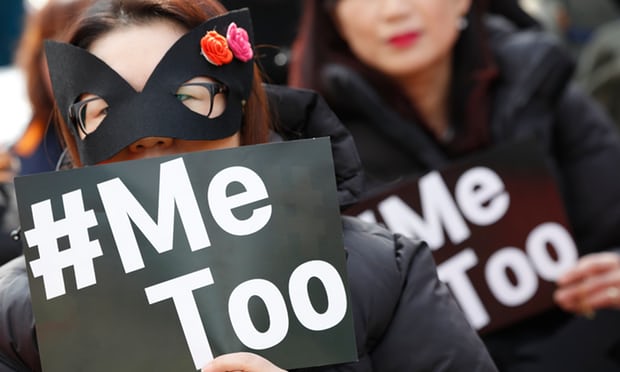The 2018 National Women’s History theme presents the opportunity to honor women who have shaped America’s history and its future through their tireless commitment to ending discrimination against women and girls. The theme embodies women working together with strength, tenacity and courage to overcome obstacles and achieve joyful accomplishments. Throughout this year, we honor fifteen outstanding women for their unrelenting and inspirational persistence, and for understanding that, by fighting all forms of discrimination against women and girls, they have shaped America’s history and our future. Their lives demonstrate the power of voice, of persistent action, and of believing that meaningful and lasting change is possible in our democratic society. Through this theme we celebrate women fighting not only against sexism, but also against the many intersecting forms of discrimination faced by American women including discrimination based on race and ethnicity, class, disability, sexual orientation, veteran status, and many other categories. From spearheading legislation against segregation to leading the reproductive justice movement, our 2018 honorees are dismantling the structural, cultural, and legal forms of discrimination that for too long have plagued American women.
In additional to National and Community Honorees we recognize the ongoing persistence of our mothers, grandmothers, aunts, sisters, neighbors, and friends. We hope you will join us in celebrating all women this month and throughout the year. .
Nevertheless She Persisted: This phrase was born in February 2017 when Senator Elizabeth Warren, D-MA, was silenced during Jeff Sessions’ confirmation hearing for Attorney General. At the time, Warren was reading an opposition letter penned by Coretta Scott King (a past NWHP honoree) in 1986. Referring to the incident, Senate Majority Leader Mitch McConnell, R-KY, later said “Senator Warren was giving a lengthy speech. She had appeared to violate the rule. She was warned. She was given an explanation. Nevertheless she persisted.” Feminists immediately adopted the phrase in hashtags and memes to refer to any strong women who refuse to be silenced.
Fighting all forms of discrimination against women takes persistence. The 2018 honorees have all gotten the message to stop, either directly or indirectly, yet they have all continued to fight and succeeded in bringing positive change to the lives of diverse American women.
Susan Burton
After Susan Burton’s five-year old son was accidentally hit and killed by a car, she numbed her grief through alcohol and drugs. As a result, she became trapped in the criminal justice system for nearly two decades before finding freedom and sobriety in 1997. Just one year later, Burton founded a nonprofit, dedicating her life to helping others break the cycle of incarceration.
National Women’s History Project’s 2018 African-American Honorees:
Susan Burton founded A New Way of Life Re-Entry Project (ANWOL) in 1998; starting with just one house in Los Angles, she initially found participants at the bus stop where former prisoners were released. ANWOL now operates five residential homes and provides resources such as case management, employment and pro bono legal services. ANWOL has provided direct services to over 1,000 women, over 75% of whom stay drug free and out of prison. ANWOL empowers participants through advocacy, leadership and community organizing.
Burton is co-founder of All of Us or None (AOUON) and the Formerly Incarcerated and Convicted People’s Movement (FICPM), both national grassroots civil rights movements comprised of formerly incarcerated individuals, their families, and community allies. In collaboration with UCLA’s Critical Race Studies Program, Burton launched the Employment Rights Re-Entry Legal Clinic which has grown to be the largest of its kind in Southern California.
Susan Burton has earned numerous awards and honors, and is widely recognized as a leader in the criminal justice reform movement. She is a past Soros Justice Fellow, Women’s Policy Institute Fellow and Community Fellow under the California Wellness Foundation’s Violence Prevention Initiative. Burton has served on the state’s Little Hoover Commission and the Gender Responsive Strategies Task Force. For her work, Burton was named a CNN Top Ten Hero in 2010 and received the prestigious Citizen Activist Award from the Harvard Kennedy School of Government. In 2015 Burton was named by the Los Angeles Times as one of eighteen New Civil Rights Leaders in the nation. Her memoir Becoming Ms. Burton: From Prison to Recovery to Leading the Fight for Incarcerated Women was released in 2017.
Pauli Murray (1910-1985)
Pauli Murray was a civil rights and women’s rights activist decades ahead of her time. Facing lifelong discrimination based on her race and sex, she persisted and became an accomplished attorney, author, activist, academic, and spiritual leader.
Pauli Murray was extremely bright as a child, she finished first in her class at Howard Law School where she was the only female student. Despite her academic prowess, she was denied admission to UNC graduate school in 1938 due to her race and denied a fellowship to Harvard Law in 1944 due to her sex. She went on to be the first African-American awarded a law doctorate from Yale (1965) and later became the first African-American woman to be ordained an Episcopal priest (1977).
Murray was a critical figure in both the civil rights and women’s rights movements. In 1940, fifteen years before Rosa Parks, Murray was arrested for sitting in the whites only section of a Virginia bus. She coined the term “Jane Crow” referring to the intersecting discrimination faced by African American women and was highly critical of sexism within the civil rights movement. JFK appointed her to the Presidential Commission on the Status of Women (1961) and she was a co-founder of the National Organization for Women (NOW) in 1966. Many of Murray’s legal theories were decades ahead of their time and she is considered a pioneer of women’s employment rights. Her papers while a Howard law student arguing against segregation were used over a decade later in the landmark Brown v. Board of Education case (1955). Similarly, in the early 60s she argued that the 14th amendment forbade sex discrimination, a full ten years before the U.S. Supreme Court came to the same finding in Reed v. Reed (1971).
Pauli Murray died in 1985. The Episcopal Church honored her as one of its Holy Women in 2012. In 2016 Yale University announced it would name a residential college after Murray, and that same year her family home in Durham, NC was designated a National Historic Landmark by the National Park Service.





